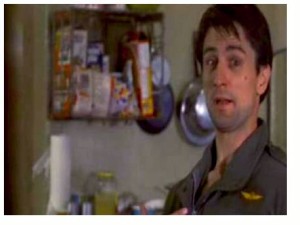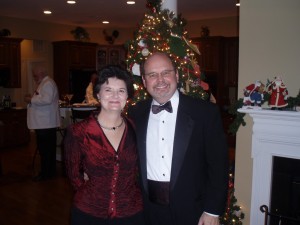or, “How far would you go to market your book?”
by Michelle Gagnon
A few weeks ago, author Tawni O’Dell wrote a very funny essay about some of the, oh, let’s call them “interesting,” experiences she had when marketing her first book. The article incited a rabid response on the Sisters in Crime listserv, where the debate centered on whether or not Tawni was taken advantage of because she was female, if she was a fool to go along with the absurd things that were asked of her, or if any author (gender be damned) would do the same.
Here’s what kicked off the uproar:
Tawni O’Dell’s debut, “Back Roads” is a dark, gritty portrayal of a family in crisis told entirely in the male first-person voice of 19-year-old Harley Altmyer. Entertainment Weekly offered to write a brief piece on O’Dell to coincide with the release.
Now, you can just imagine how excited her PR team was. A feature article, including photos, in a major periodical? Barring an Oprah appearance (more on that later), it doesn’t get much better.
So here’s how it went down, in O’Dell’s own words:
I was busily signing books at a table set up in the middle of the mall when I happened to look up and saw an anxious, overcaffeinated little troupe of petite Ray-Banned androgyny and ethnic ambiguity all dressed entirely in black and all clutching cups of Dunkin’ Donuts coffee coming toward me. (We didn’t have a Starbucks.) As they did so the wide-eyed, whispering herd of extra-large Steelers sweatshirts and camouflage hunting jackets milling around me split decisively in two to let them pass. The parting of the Red Sea couldn’t have been any more dramatic.
They turned out to be my photographer, Nathan (pronounced the French way, Nat-on,) his assistant, his other assistant, a makeup artist and a stylist.
One of the assistants informed me that Nathan would like to shoot me outside in some authentic Pennsylvania woods because his favorite scenes in my book had taken place in the woods and he envisioned me there. I told the assistant to tell Nathan, who was standing right beside us but apparently didn’t like to participate in his own conversations, that it was January and it was snowing. The assistant then told me not to worry, they would keep Nathan warm.
They then loaded me into their van like I was a kidnapping victim and off we drove in search of some authentic Pennsylvania woods. We didn’t have to go far. We found some behind the mall. A bunch of my family and friends that had been in attendance at the signing also came along. Nothing in the world was going to keep them from seeing this.
Nathan was thrilled with the woods. He found his voice and began barking orders in an accent I was never able to place. It was sort of a cross between Desi Arnaz and Kazu, the meddlesome martian on the Flintstone’s.
I stood by blowing on my hands and stomping my feet to keep warm when suddenly he turned to me, eyed me up and down, and proclaimed, “We need to tease her hair. I want glitter. Lots of glitter, and the clothes will have to go.”
“You want me to be naked?” I spluttered.
“Do we have some fabric?” he went on, ignoring my question and my obvious distress. “I see swaths of tulle billowing out behind her and hanging in the tree branches like a morning mist.”
“You want me to be naked?” I repeated.
Before I could do or say anything else, I was ushered back into the van where I was stripped down to my underwear and sprayed in glitter.
When I re-emerged, my chattering entourage became deathly silent. Jaws dropped open and I heard a few gasps as I crunched barefoot through the snow, wrapped in yards of sparkling gauze, with my butt hanging out, and wondering to myself, Did John Irving ever have to do this?
Nathan positioned me and began snapping away with his camera.
“You’re a wood nymph!” he cried. “Yes, you’re a wood nymph! You’re an ethereal spirit. You’re an incarnation of the sky. You’re real yet you’re not real at all.”
So. Should O’Dell have objected? Absolutely. Can I empathize with the fact that as an overwhelmed and inexperienced young author, she participated in the shoot without thinking it through first? Certainly. Have I done things in the course of hawking my books that I regret? Without question (although nudity has never been involved. Yet.)
The sad truth is that in a time of severely limited marketing budgets, when authors are must rely largely on their own resources with very little guidance, the results can occasionally be quite ugly.
Here are some of the more bizarre and extraordinary things writers have done in an attempt to sell their books:
* In 2008, an Indonesian writer threw $10,700 in cash from an airplane to promote his book. His editor probably should have clarified that when she told him to throw his entire advance into marketing, she didn’t mean it literally.
* This past spring, the aptly named Paul Story pitched a tent outside the cottage where his book was set and camped there for two months, selling copies to passing hikers (although I believe the book was mainly about isolation, so I question how many potential buyers he actually encountered).
* Remember when someone threw a book at Obama a few weeks ago? Turns out that was no political protest, but a misguided attempt by author Michael Lohan (who I can only hope is not related to Lindsay) to promote his work. No, I’m not kidding. The best part? The Secret Service released him without pressing charges.
So…I almost shudder to ask, but where would you draw the line on promotion? (Basil, I can practically hear you sharpening your quill in the wilds of Alaska.)
Oh, and don’t feel too sorry for poor Tawni. Turns out the EW article never went to print- because Oprah called and invited O’Dell to appear on her show fully clothed.










